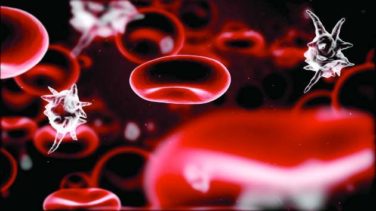The day after the election, Time magazine reported an increased call volume to the Trevor Project, an organization that provides suicide counseling for LGBT youth.1 A colleague of mine who works closely with the Trevor Project told me that this was the second-highest call volume the organization has received since its inception.
Regardless of your political affiliation, we all can agree that this year’s election was divisive. Many minority groups, including the LGBT community, felt singled out. Although many of us have seen contentious elections in our lifetimes, teenagers, especially LGBT youth, are sensitive to this divisiveness.
I will not debate whether the President-elect’s agenda will be beneficial or harmful to the LGBT community. I will not speculate what the Trump administration will actually do for the LGBT community. I will, however, highlight the fears many LGBT youth are feeling right now. I will attempt to explain why they are feeling this way, and what medical providers – or even parents who read this column – can do to address these fears.
Many LGBT youth who called the Trevor Project had expressed fear about the future. Whenever someone becomes suicidal, they have an overwhelming sense of hopelessness.2 Many perceive that the upcoming administration may be hostile to the LGBT community, and because many fear that this new administration may undo all the progress made in LGBT rights in the last 8 years, they have little hope for the future. Numerous reports of increased hate-crime incidents since the start of the election season last year may have exacerbated this feeling of hopelessness.3 This hopelessness may cause many to feel that the best way out is through suicide. Others feel that their sexual orientation or gender identity may be an additional burden to their family during this new era, and so to relieve them of this burden, they consider ending their own lives.4
For adults who have seen many administrations come and go, this may seem like hyperbole. But we have the advantage of living through various elections and administrations, knowing that they were not as catastrophic as others claimed. However, for many LGBT teens or young adults, this is probably their first election after reaching adolescence since Obama was elected in 2008. The Obama administration has been friendly to the LGBT community,5 and for LGBT youth, the upcoming Trump administration may be a substantial departure from this friendliness. In addition, people across the political spectrum have stoked fears among LGBT youth that the new administration will be devastating for the LGBT community. Adolescents, compared with adults, respond more strongly to the limbic system of the brain – the part of the brain involved in emotional processing, which includes fear.6 This fear will override any attempt by the prefrontal cortex – the part of the brain involved in cognitive processing6 – to put the results of this election within context and within perspective. In other words, it is easier for the adolescent brain to become much more despondent over a disappointing outcome.
What can providers do for LGBT youth who feel distressed over the outcome of the election? The approach is twofold. First, address the emotions emanating from the limbic system. Once this influence is dampened, engage the prefrontal cortex to process the emotions and address these fears in a more constructive way.
For LGBT youth who are actively suicidal, providers should first determine the risk for suicide (for example, determine the level of family support, access to lethal means of suicide, etc.) Then, depending on the risk, create a suicide safety plan that will help the teen or young adult cope with the distress. For more information on how to address suicidality among LGBT youth, please see my previous column ( “It does get better… with your help: Preventing suicide,” October 2016, page 30 ).
Recognize and validate the fears of LGBT youth. Do not dismiss their fears as an overreaction. Because of the adolescent brain’s responsiveness to the limbic system, their fears and emotions are much more intense than are those of adults. Allow them to express how worried they are about the future. Remind them that you are their advocate and that your goal is to keep them safe. Remind your LGBT patients that people who have advocated for them did not disappear overnight because of the election. Some parents of my LGBT patients have pointed out that many LGBT youth feel safer when a nonfamily member advocates for them; therefore, it is essential to remind your LGBT patients about your role as their physician and their advocate.
Another way to support your LGBT patients during this stressful time is to help create a safe environment for them, especially at school. There are some concerns about an increase in antigay and antitrans harassment and bullying since the election.7 Schools are doing their best to respond appropriately to these incidents.8 Fortunately, many schools are responsive to physicians’ recommendations for preventing and addressing school bullying.9 For more information on how providers can address bullying of LGBT youth in school, please refer to my column on bullying ( “Bullying,” May 2016, p.1 ).
Once you reduce the responsiveness of the adolescent brain to the limbic system, you then can focus on the prefrontal cortex to help adolescents engage and cope with their distress. Have them recall from their civics classes that the United States government has checks and balances and that one person does not have unilateral power. Remind the adolescent that administrations and governments do not last forever and that there is an opportunity to change administrations every 4 years.
One of the most powerful ways to engage the prefrontal cortex of the distressed adolescent is to provide the individual with opportunities to be an active member of the community. They can volunteer in many organizations that share their values and beliefs. These organizations do not need to be political, but they should provide some service to the community. This will remind the adolescents that they can have an impact on their own lives and in the lives of others. Volunteering in these organizations will give them a sense of purpose and create a stronger connection to their communities10 – both are antidotes to the intense feeling of despair and hopelessness.
The fear and concerns that LGBT youth have over the election results are intense and deserve attention. Their neurobiology and lack of experience make these fears much more powerful. Providers, parents, and advocates have the responsibility to address these fears, remind LGBT youth that they are their advocates, and remind LGBT youth of the ability to influence the outcomes of their own lives. Providing skills to cope with disappointing outcomes also will prepare LGBT youth for the challenges of adulthood and for the many elections to come.
Resources
The Trevor Project AAP: Talking to your children about the election HealthyChildren.org: How to support your child’s resilience in a time of crisis Suicide Prevention Lifeline: Patient safety plan template
References
1. “Donald Trump Win Causes Spike in Crisis Support Line Calls,” Time magazine, Nov. 9, 2016.
2. Int Rev Psychiatry. 1992;4(2):177-84.
3. “U.S. Hate Crimes Surge 6%, Fueled by Attacks on Muslims,” the New York Times, Nov. 14, 2016.
4. Arch Suicide Res. 2015;19(3):385-400.
6. Neuropsychiatric Disease and Treatment. 2013;9:449-61.
9. “Roles for pediatricians in bullying prevention and intervention,” StopBullying.gov, 2016.
10. Adv Psych Treatment. 2014;20(3):217-24.
Dr. Montano is an adolescent medicine fellow at Children’s Hospital of Pittsburgh of the University of Pittsburgh Medical Center and a postdoctoral fellow in the department of pediatrics the University of Pittsburgh. Email him at pdnews@frontlinemedcom.com.




